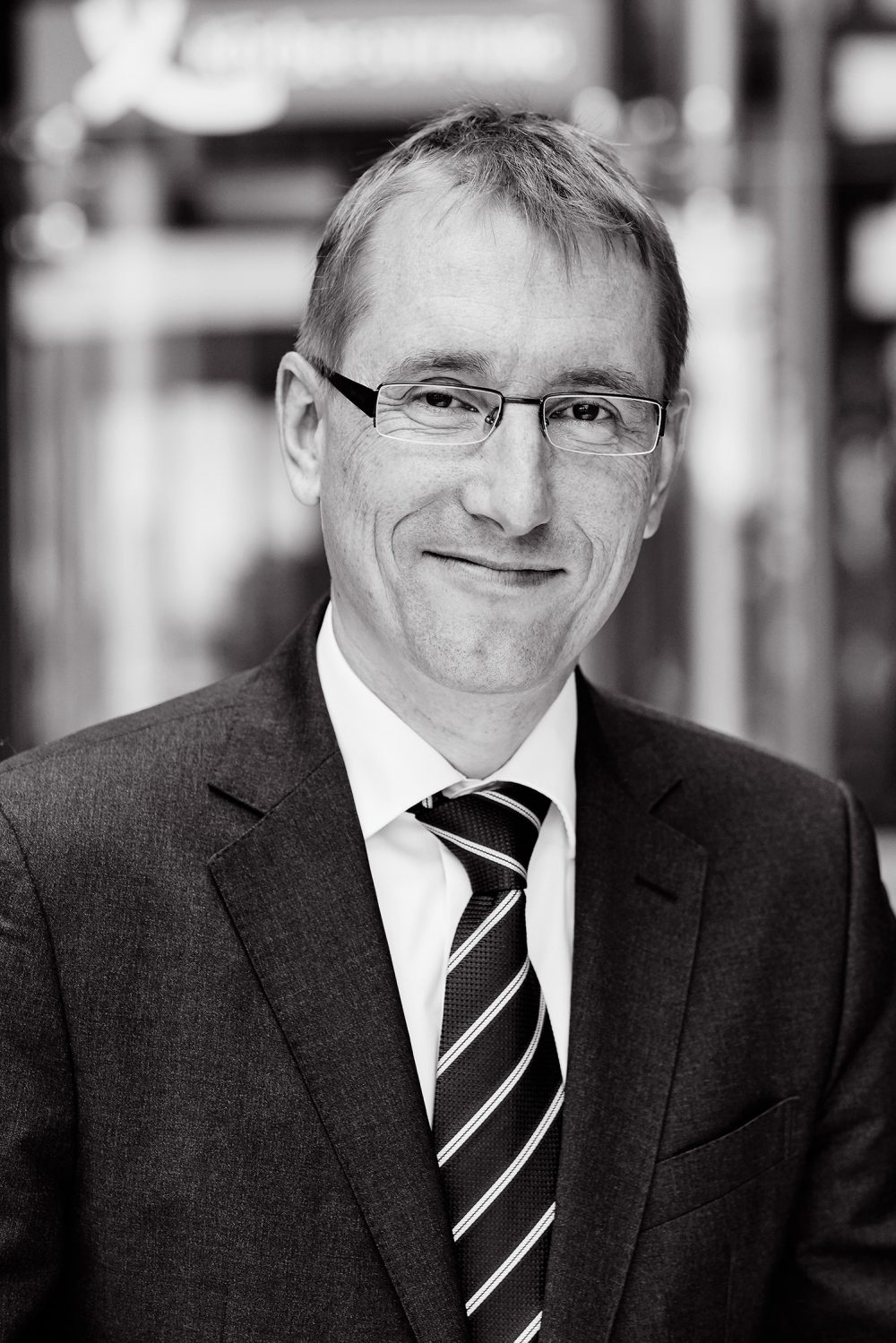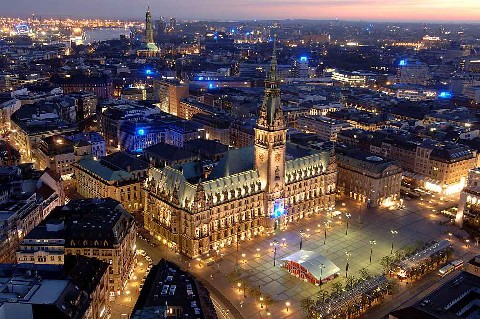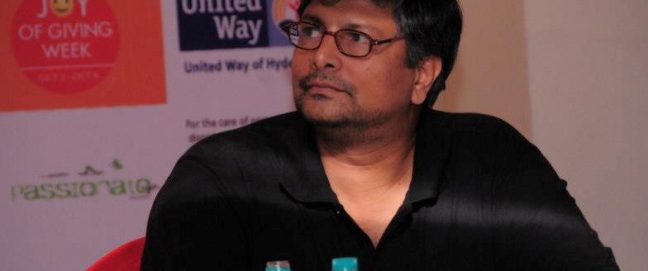Thomas Paulsen is a member of the executive board of Hamburg-based Körber Foundation, one of Germany’s largest philanthropic foundations. Ahead of a major gathering of German foundations in Osnabrück next week, Paulsen tells Charles Keidan why Hamburg is the capital of German philanthropy, why foundations should support infrastructure, and about those machines that produce filter-tipped cigarettes.
You mentioned when we met that Hamburg is the centre of German philanthropy. Why is that?
I think there are two factors. One is that Hamburg is a rich city, with many wealthy families and successful individuals who decide to give something back to society. A recent example is the recently established Joachim Herz Foundation with an endowment of more than 1 billion euros. And the second factor is that authorities in Hamburg are trying to encourage the establishment of new foundations by applying the legal framework pragmatically.
How old is the Körber Foundation and what does it do?
It was established in 1959 by Kurt Körber, who was a very successful entrepreneur. He was active in many fields. He wanted to support education, he wanted to be active in international dialogue, he was a big supporter of the German Ostpolitik so as early the 1970s, he took politicians and intellectuals from Germany to the Soviet Union to have a dialogue between East and West.
He was also interested in science, culture and society. So today Körber Foundation is active in three areas; demographic change, innovation and international dialogue. It’s an operating foundation, we don’t give any grants although we do support some philanthropic infrastructure. Our annual budget is around €19 million euros. Our endowment consists mainly of the company which Körber had established after World War II and investments in real estate.
As an operating foundation, how do you support philanthropic infrastructure?
We’ve just given a grant to Donors and Foundations Networks in Europe (DAFNE) together with the Robert Bosch Foundation so that they can establish a policy advocacy function in Brussels. We think it’s important that DAFNE, which represents 7.500 European foundations, has a voice in Brussels.
What do you want them to say with that voice?
We want them to promote laws which support cross-border cooperation among foundations.
The European Foundation Statute has failed, but we need to continue to promote a positive environment for foundations in Europe. We also give money to the European Foundation Centre (EFC), we are a member of the EFC’s governing council and also the management committee and we support initiatives like the European Community Foundations Initiative, so we are supporting infrastructure in several areas.
As we both learned at the recent WINGSForum, funders who support infrastructure are the exception, not the rule. What led you to support infrastructure?
I think it’s a matter of values and interests. If foundations unite and organize themselves, they can be much more effective in supporting the development of the sector and creating a favorable environment for their work. This is why we need philanthropic infrastructure organisations.

The Elbphilharmonie Concert Hall is a result of Hamburg’s rich philanthropic community. When the city was unable to complete construction on the hall, the Foundation Elbphilharmonie raised millions from private donors to complete construction.
However, for me, the idea that philanthropic infrastructure organizations need to prove their immediate value to the founders or the funders is wrong. You should not expect immediate returns, you need to think long term. American foundations played a big role in establishing the European Foundations Centre, for example, and other infrastructure entities in Europe. You would think that Europe today with all its wealth could support its own philanthropic infrastructure, but I’m sad that this is still not possible, we still need American money.
How did you become involved in philanthropy?
I worked in a think-tank on international relations after my degree, then having worked for a bank and for PricewaterhouseCoopers as a consultant, I was hired by the Körber Foundation. I basically established their international affairs business in Berlin. Two years ago they invited me to join the executive board.
This is effectively the professional leadership of the foundation?
Yes, we have three members of the executive board. As CFO, I am responsible for the asset management and I am also responsible for our projects in the area of international dialogue.
There’s a debate about whether foundations should put more of their assets to work and that, where money is invested, it should be invested in a way that is not inconsistent with the foundation’s mission. How do you see that?
I think every foundation should have the freedom to decide whether it wants to get involved in social impact investing or invest in sustainable business models. It should not be prescribed by law or by anybody else.
It’s a difficult environment, particularly for small foundations because of the low interest rates, so foundations are either forced to take a higher risk or they have smaller returns so that they cannot spend as much money on projects. Social impact investing cannot resolve this dilemma.
At Körber Foundation, we are committed to maintaining our endowment in real terms, not only in nominal terms. Therefore we believe in real assets like equity or real estate.
Are there any areas where you wouldn’t invest? Arms or tobacco, for instance…
Well, our founder Kurt Körber earned most of his money with a machine which could produce filter cigarettes which he sold to the tobacco industry.
For decades his company dominated the global market for these machines.
Today the company has diversified and is active in growth sectors like logistics and automation. But the point is, that we don’t have a problem with tobacco, because producing machines for the tobacco industry, that’s where we come from, and it is still part of the business of the company, which we own.
Thinking of your international work, what are your approaches to conflict resolution and intercultural dialogue?
I can give you two examples. One is a project we had for many years where we brought together representatives from Israel, from Syria, from Saudi Arabia, from Iran, from the United States and from Europe to have confidential discussions about the conflicts in the Middle East. It was pretty successful because people came to these meetings no matter what their current position or occupation was, because they felt it was useful to go there. Those meeting could not have taken place in public.
Another example is a network of European history competitions in 25 countries in Europe called EUSTORY. Around 13,000 students participate every year. The largest competition is in Germany, second is Poland and the third one is Russia.
So far 200,000 students have participated. I think that’s an important contribution to building and maintaining European identity and unity. I also think an open approach to your own history is a key element of an open society, so we are trying to establish competitions in countries in which there is none yet.
Speaking of open societies, Germany has been very open in the last year. Where are the limits to that openness and what role can philanthropy play in relation to issues like dealing with a large numbers of immigrants and refugees?
Foundations can certainly play a role in integrating migrants into society, but they cannot substitute the state. In the end their budget is too small relative to the state. What foundations can do is try out new models and lead the way. And with regard to democracy in Germany foundations can play a big role through, for instance, supporting democracy education in schools.
Visit the website for more on the gathering of German foundations in Osnabrück on 17 – 19 May.










Comments (2)
Very interesting discussion about the philanthropic foundations and the success of the Körber Foundation.
Great interview! Good to see philanthropy infrastructure described in strategic terms and through a long-term impact lens!